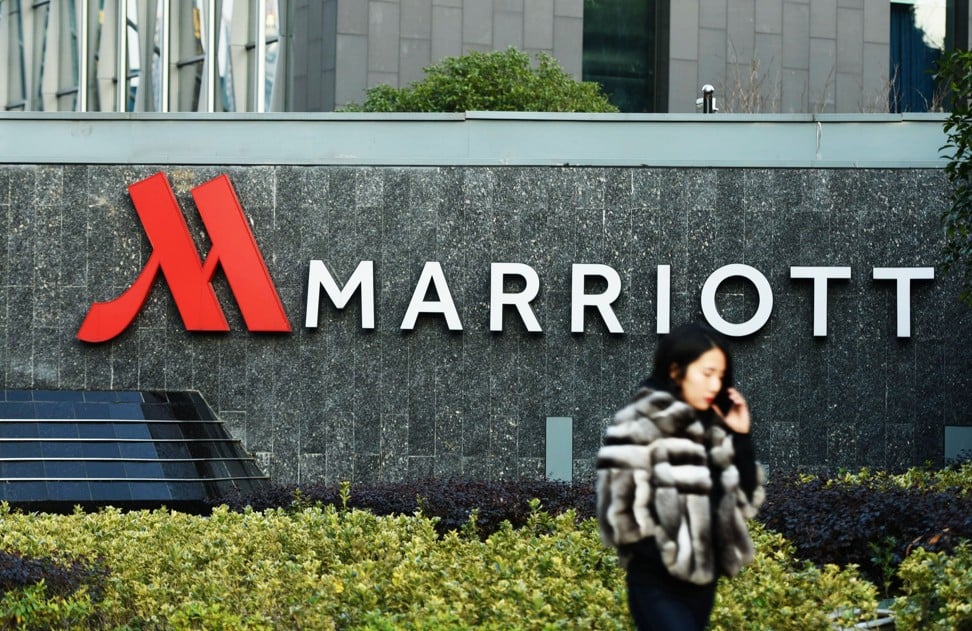
Delta Air Lines, Zara join Marriott in China’s bad books over Tibet, Taiwan gaffes
Foreign firms face wrath of foreign ministry, aviation authority and social media users after making same mistake as hotel chain
The outrage in China over US hotel giant Marriott’s gaffe in which it listed Tibet, Hong Kong, Macau and Taiwan as independent countries, has spread to a clutch of other well-known international brands as angry internet users sought to “expose” foreign businesses for not respecting Chinese sovereignty.
Not that the upset caused by the Marriott saga was restricted to social media users, however. China’s foreign ministry also saw fit to react on Friday.
“We welcome foreign enterprises to do business in China,” ministry spokesman Lu Kang said.
“Meanwhile, they should respect China’s sovereignty and territorial integrity, abide by Chinese law, and respect the Chinese peoples’ feelings, which are the foundation for any corporation to do business in any country.”
The row with the hotel chain began on Tuesday when a Chinese-language questionnaire it emailed to its customers referred to Tibet, Hong Kong, Macau and Taiwan as countries.
But Marriott was not alone in causing offence with its geographical inaccuracies.
The Civil Aviation Administration of China said that it had summoned executives of Delta Air Lines after the company was found to have listed Taiwan and Tibet as independent countries on its website. It said it had also asked the airline to rectify the mistake.
Delta issued a public apology on Friday, saying it had made a “grave mistake”.
The administration said it had asked all foreign airlines to check their websites for similar indiscretions.
Meanwhile, international fashion brand Zara and medical equipment maker Medtronic were ordered by the internet regulator in Shanghai to update their websites after they too were found to have to referred to Taiwan as a country.
The two companies complied with the request and also issued public apologies on their Chinese websites.
The discoveries were shared across Chinese social media platforms, and internet users across the country expressed their displeasure.
“Political stance is the most important part of the brand awareness when foreign companies do businesses here,” said Zhu Guangyu, a 44-year-old consumer from Shanghai. “I will never buy those brands or use their services.”
Gu Jianguang, director of the Public Policy Research Institute at Shanghai Jiao Tong University, said foreign firms would be wise to heed such comments.
“As disgruntled consumers express their anger towards the brands, it is a big lesson for foreign businesses to be politically correct when doing businesses in China,” he said.
“It is expected that some of the companies will be severely punished by the relevant Chinese authorities.”
The remedial action taken by Delta Air Lines was not good enough for one anonymous social media user who was keen to promote a much harder line.
“Why is there a need to correct themselves and apologise? Why don’t we just kick them out since the market is so big,” the person said in response to the aviation authority’s demands.
Another nameless internet user was equally adamant in how such offenders should be treated.
“Supporting [these regions’] independence means you are against China. Such firms should be kicked out of China,” the person said.
Hu Xingdou, a Beijing-based economics professor, said foreign companies needed to be aware of Chinese people’s deep-rooted sensibilities.
“Businesses from the US and other Western markets might have underestimated the severity of the geopolitical issues in China’s business world,” he said. “Young people here are taught to be politically correct from the first day they go to school.”
A senior executive from one of the companies involved in the row, who asked not to be named or his employer identified, told the South China Morning Post that the issue was “serious” and that the crisis management cost, in both financial and human resources terms, would be “huge”.
Arne Sorenson, the president and CEO of Marriott International, said on Thursday that the hotel group “respects and supports the sovereignty and territorial integrity of China. Unfortunately, twice this week, we had incidents that suggested the opposite”.
After issuing a public apology in response to the geographical gaffe on the emailed questionnaire, he was forced to speak out once more when it transpired that an employee had “liked” and shared a Twitter post by Friends of Tibet, which campaigns for independence for the region.
Sorenson attributed the second blunder to “misconduct by an individual member of staff”.
Many internet users called for a boycott of the hotel chain, while Chinese booking platforms Dianping and Meituan withdrew Marriott properties from their systems.
In official statements published by Xinhua, there was no mention of whether other brands under the Marriott International umbrella would face investigation by the relevant authorities.


